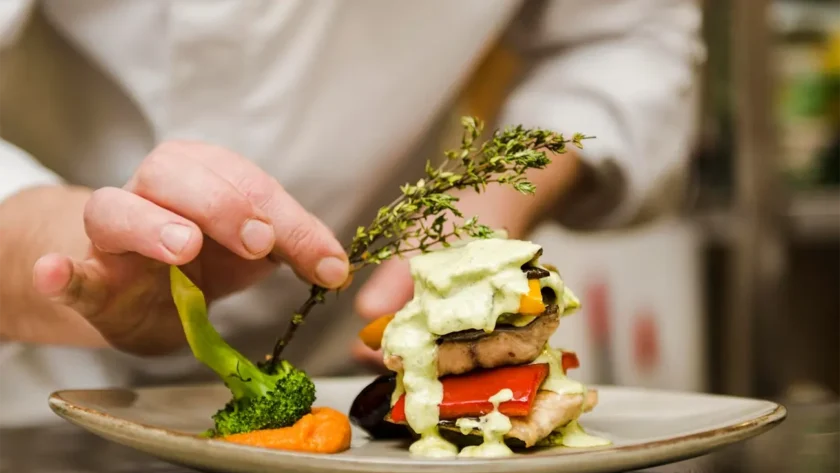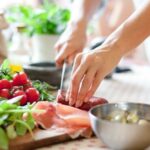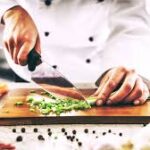Cooking is an art form that has been passed down through generations, each one refining and adapting techniques, flavors, and recipes. The act of preparing food is not just about following recipes or measuring ingredients; it’s about understanding the ingredients, the process, and the way flavors interact. Whether you’re an amateur cook or a seasoned professional, the pursuit of mastering cooking is a lifelong journey that involves practice, patience, and a passion for food. But what exactly is the secret to mastering the art of cooking?
In this article, we’ll dive into the various elements that contribute to becoming a great cook. From understanding the basics to experimenting with complex techniques, we’ll explore what it really takes to master the kitchen and create culinary masterpieces.
1. Start with the Basics
Before you can dive into the world of intricate recipes and advanced cooking techniques, it’s essential to master the basics. This includes understanding fundamental kitchen skills like knife techniques, cooking methods, and seasoning. The foundation of every great dish begins with knowing how to properly chop, sauté, grill, boil, and bake.
Knife Skills
A sharp knife is the cook’s best friend. Mastering basic knife cuts like dicing, julienne, and chiffonade can significantly speed up your prep time and improve the presentation of your dishes. Learning the proper technique will also ensure your safety in the kitchen.
Cooking Methods
The core cooking methods—grilling, roasting, sautéing, steaming, and braising—form the backbone of nearly every recipe. Familiarity with these techniques allows you to understand the transformation that happens when raw ingredients meet heat, and it will give you the versatility to tackle any recipe.
Seasoning and Flavor Balancing
Seasoning is an art that is often underappreciated. A well-seasoned dish is the difference between good food and great food. Learn the difference between salt types, herbs, spices, and acids (like lemon juice or vinegar) to elevate your dishes. Balancing these elements is crucial to creating food that’s both flavorful and exciting.
2. Understand Your Ingredients
A great chef knows that the key to a great dish often lies in the ingredients. Using fresh, high-quality ingredients is the first step in mastering cooking. Understanding the seasonality of produce and the different varieties of herbs, meats, and grains can lead to more flavorful, dynamic meals.
Know Your Ingredients
Start by familiarizing yourself with the ingredients in your pantry and fridge. This will allow you to get creative with your cooking, rather than just following a recipe. If you’re unfamiliar with an ingredient, don’t hesitate to look up its uses and properties.
Buy Fresh, Buy Local
Whenever possible, try to purchase fresh, seasonal ingredients from local markets. Seasonal produce tastes better and is often more affordable than off-season produce. Fresh herbs, for example, offer an aromatic quality to your cooking that dried herbs can’t replicate.
Understand the Chemistry of Cooking
Great cooking involves understanding how different ingredients react to heat, how acids brighten a dish, how fats carry flavor, and how starches thicken sauces. Mastering these principles will enable you to create dishes with depth and complexity.
3. Experiment with Techniques
As you become comfortable with basic cooking methods, start experimenting with advanced techniques. Techniques like sous vide, fermentation, or making your own stocks and sauces can elevate your cooking and give your dishes a distinctive flair.
Sous Vide Cooking
Sous vide, or cooking in a vacuum-sealed bag in water at a precise temperature, is a technique that ensures consistent results. By using sous vide, you can create tender meats, perfect vegetables, and custard-like textures that are difficult to achieve with traditional cooking methods.
Fermentation
Fermentation is another culinary trend that has gained popularity. It’s not only a way to preserve food but also to add complex flavors and beneficial bacteria to your meals. Think homemade kimchi, sauerkraut, or even fermented hot sauces.
Homemade Stocks and Sauces
Making your own stock or sauce from scratch can take your cooking to a whole new level. The depth of flavor that comes from simmering bones or vegetables for hours far exceeds the taste of store-bought alternatives.
4. Learn to Taste
One of the most important skills a chef can possess is the ability to taste and adjust seasoning during the cooking process. Your palate evolves as you continue to cook and experiment, but it’s crucial to always taste your dish as it progresses. Sometimes, it may need a pinch more salt or a squeeze of lemon to balance the flavors.
Tasting as You Go
Don’t wait until the dish is finished to taste it. As you cook, keep tasting and adjusting the seasoning. This iterative process will help you understand the balance of flavors and ensure your dish is perfectly seasoned.
The Power of Acidity
Acid is an essential element of cooking that can brighten and balance flavors. Whether it’s a splash of vinegar in a soup or a squeeze of lemon over a dish, understanding how to use acid will make a noticeable difference in your cooking.
5. Practice, Practice, Practice
No one becomes an expert overnight, and cooking is no exception. The more you cook, the better you’ll get. Start with simple recipes and gradually move on to more complex dishes as you gain confidence and experience.
Consistency is Key
To become great at cooking, consistency is crucial. Cook often and learn from your mistakes. If a dish doesn’t turn out the way you envisioned, don’t get discouraged. Analyze what went wrong and use it as a learning opportunity.
Cook with Purpose
When practicing, don’t just cook for the sake of it. Try to master a particular dish or technique before moving on to the next. This way, you’ll refine your skills and build a more comprehensive knowledge of the culinary arts.
6. Embrace Your Creativity
Cooking is an art, and like any art form, it thrives on creativity. Don’t be afraid to experiment with different ingredients, flavors, or plating techniques. Great chefs often get their best ideas by breaking the rules and thinking outside the box.
Fusion Cooking
Fusion cooking is the combination of flavors, techniques, and ingredients from different culinary traditions. It’s a way of creating new and exciting dishes that offer a fresh perspective on classic meals.
Plating and Presentation
A beautifully plated dish enhances the overall dining experience. Pay attention to the aesthetics of your meals, from how ingredients are arranged on the plate to the garnishes you use. The visual appeal of a dish is just as important as its taste.
7. The Importance of Patience
Great cooking takes time. Whether you’re braising a tough cut of meat or making a slow-simmered soup, patience is often the key to bringing out the best flavors. Rushed cooking can lead to underdeveloped flavors, dry meats, or soggy vegetables.
Timing is Crucial
Learn how long different foods need to cook and what the best techniques are for ensuring they reach perfection. Don’t rush through the process—give your dishes the time they deserve.
Frequently Asked Questions
- How can I improve my cooking skills quickly?
Start with simple dishes and focus on mastering basic cooking techniques. Cook regularly, taste as you go, and gradually try more complex recipes. - What should I focus on first when learning to cook?
Begin by learning basic knife skills, cooking methods (such as sautéing and roasting), and how to season food properly. - What’s the most important thing to know about seasoning?
Salt is often the most critical seasoning. Always taste your dish and adjust the salt levels, as it helps bring out the natural flavors of the food. - How do I know when a dish is seasoned correctly?
Taste your dish as it cooks. It should have a balance of flavors—salty, sweet, bitter, and sour. If something feels “flat,” add a touch of salt, acid, or spice. - Can I experiment with ingredients even if I’m a beginner?
Absolutely! Start small by substituting ingredients in familiar recipes. As you gain confidence, experiment with more complex flavors and ingredients. - How do I become more confident in the kitchen?
Cook regularly, try new recipes, and don’t be afraid to make mistakes. With time, you’ll become more confident and instinctive in your cooking. - What are some easy-to-master advanced cooking techniques?
Try techniques like roasting vegetables, making homemade stocks, or braising meats. These are approachable yet add depth to your cooking.
Conclusion
Mastering the art of cooking is not just about following recipes but understanding techniques, ingredients, and flavors. With practice, patience, and creativity, anyone can improve their cooking skills and create delicious, memorable meals. Whether you’re a novice in the kitchen or looking to refine your craft, embrace the process and enjoy the journey of culinary discovery.
Key Takeaways
- Start with mastering the basics—knife skills, cooking methods, and seasoning.
- Use high-quality, fresh ingredients and understand their unique properties.
- Experiment with advanced cooking techniques like sous vide, fermentation, and homemade sauces.
- Develop your palate by tasting as you go and learning the balance of flavors.
- Practice regularly, and don’t be afraid to make mistakes.
- Embrace creativity and find your own style in the kitchen.
Mastering cooking is a lifelong adventure, but the rewards—delicious meals, the joy of creating, and the satisfaction of feeding others—make it all worth the effort.




